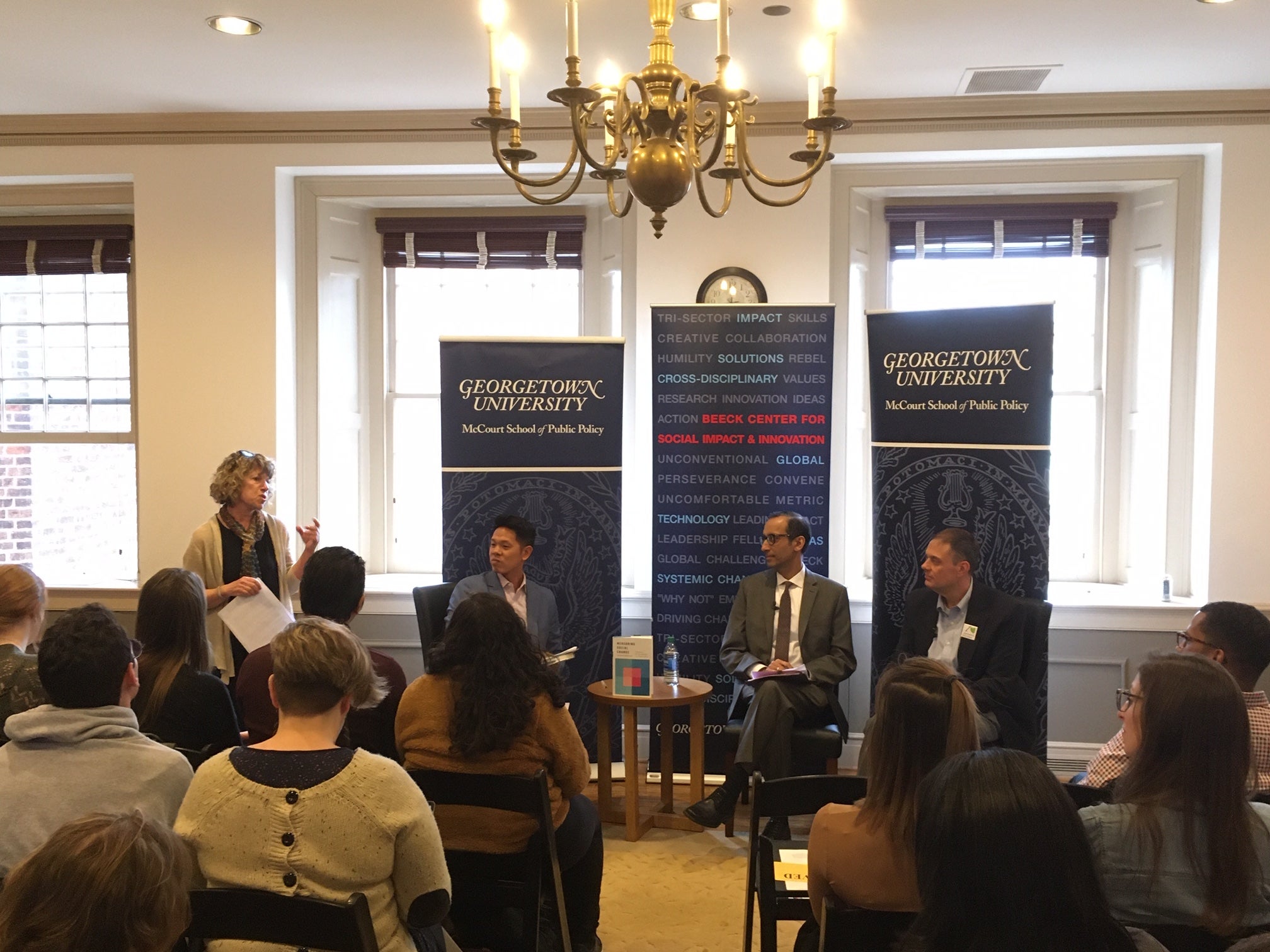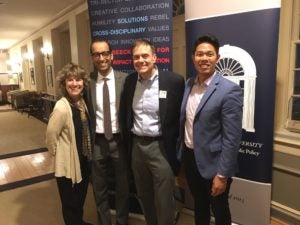Measuring What Matters: Strategies for Measuring Change in the Social Sector

Posted in News Story
On February 4, 2020, the Center for Public and Nonprofit Leadership (CPNL) at the McCourt School of Public Policy co-hosted an event to discuss the strategies for measuring social impact. CPNL Director, Kathy Kretman, opened the event noting that having worked with thousands of nonprofits in her career, leaders continue to ask, “How do we measure impact? How do we know we are making change?”

Alnoor Ebrahim, Professor of Management at the Fletcher School of Law and Diplomacy at Tufts University, and Miriam’s Kitchen CEO Scott Schenkelberg joined the Beeck Center’s Interim Director Nate Wong for a discussion on measuring what matters based on Ebrahim’s new book Measuring Social Change: Performance and Accountability in a Complex World. The discussion was a mix of both theory and practice, meant to bridge the gap and help turn theory into reality. The event was held at Georgetown University to an audience of both practitioners and students as part of Professor Kathy Kretman’s class Philanthropy, Power and Impact.
Professor Ebrahim opened the conversation by stating that we often assume that more accountability is better, leading us to get so focused on measurement and procedure that we lose sight of why we do this work. While systems of accountability are essential in most industries, organizations sometimes overemphasize that importance. They become so hyper focused on measurement and procedure that, through their attempts to be accountable, they forget their organizational goals. We need to confront our assumptions about which metrics are “good” and look at measurements that are dependent on strategy. These metrics will look different for different agencies.
In his book, Ebrahim laid out four strategies for change including niche, ecosystem, emergent and integrated. Schenkelberg discussed when Miriam’s Kitchen decided to shift its strategy from a niche strategy that provided meals and programs to an ecosystem strategy where their goal was to end chronic homelessness in Washington, D.C. In a niche strategy, your organization’s impacts are clear, your uncertainty is low, but you lose control over long-term outcomes. In an ecosystem, organizations trade a fuller understanding of their impact for a greater ability to direct their long-term outcomes.
This shift required Miriam’s Kitchen to no longer work in a silo but to coordinate action with approximately 100 other organizations serving the chronically homeless population in the area. The funder ecosystem is highly fragmented, and Ebrahim and Schenkelberg talked about the need to collaborate, to be crystal clear in what you are collaborating on, and to always keep what you are trying to accomplish at the forefront. While different strategies come with their own benefits and drawbacks, what works best for your organization can only be decided internally.
To watch the entire event for yourself, and to help develop your own organization’s strategy for social change, click here for the video. You can also read the Beeck Center’s blog post about the event here.
Measuring Social Change was sponsored by the McCourt School of Public Policy, Center for Public and Nonprofit Leadership, Beeck Center for Social Impact + Innovation, Georgetown College, and the Social Responsibility Network of Georgetown College.
